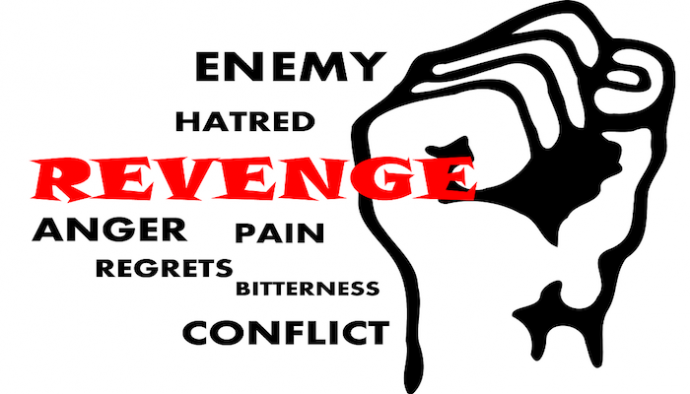We are, I believe, living in a day of revenge. The desire for and execution of vengeance is at the heart, down below the surface, of many of the things we do as a culture right now.
You see it everywhere. You see political groups taking aim at one another in retribution for this thing or that. You see people taking their revenge on social media through their reviews and critiques. You see grudges being held from top to bottom, and then all of us looking for ways to give someone else what we perceive is coming to them.
Of course, Christians are meant to live above the culture. This is part of what it means to be salt and light – that we are those who, though we live in the midst of a culture, influence that culture rather than being influenced by it.
“Sure thing,” you might say. “I’ve got no problems with that. I’m not plotting in my evil lair to wreak havoc on anyone’s life.” Well I’m not either, and yet the spirit of vengeance still lurks within my heart. I know it’s there when I read tweets and Facebook updates from people and pick them apart knowing their lives can’t be as good as they purport them to be. I know it’s there because I take the smallest level of delight in seeing something unfortunate happen to someone else. I know it’s there when I don’t receive the service I think I deserve and look for a way to lash out. I know it’s there when I do something kind or generous for another and then hold a subtle and internal sense of superiority over them expecting them to pay me back in some way.
The desire for revenge is in us, and that desire reveals something about our faith. Of course, the most basic thing it reveals is our lack of faith. Notice how Paul addresses the subject of revenge for the Christian:
“Friends, do not avenge yourselves; instead, leave room for God’s wrath, because it is written, Vengeance belongs to me; I will repay, says the Lord” (Romans 12:19).
According to Paul, we should not take matters into our own hands. It’s not that there’s not justice to be served; there very well might be. But it’s not for you or I to administer it because we aren’t capable of doing so in a true and good and noble way. This belongs to the Lord. When we execute our own sense of vengeance, whether big or small, we are expressing our lack of faith that God can and will do it on His own. But our desire for revenge reveals a few other things about our hearts as well:
1. The desire for revenge reveals our lack of understanding of our own forgiveness.
Luke 7 gives us the account of Jesus eating in the home of a Pharisee when an uninvited guest shows up. This woman with a checkered past shows up at the dinner and, in what must have been somewhat of an awkward scene, anointed Jesus with perfume and was weeping enough in His presence to wash His feet with her tears.
Jesus used the scene as a teaching opportunity, acknowledging to the other guests that the woman did indeed have much to be forgiven for. But that was precisely the reason why she was so expressive in her love – it’s because she of all people had a firm grasp on what and how much she had been forgiven.
When we are ready to execute our own revenge on those we think have wronged us, it shows that we have fallen out of touch with just how much we have been forgiven. For what someone has done to us pales in comparison to what we have done against God.
2. The desire for revenge reveals our commitment to self-protection.
The older I get the most acutely I feel the compulsion for self-protection in my own heart. I feel the need to protect my stuff, my position, my power, and I am ever more tempted to sacrifice anyone and anything that gets in the way of that. Our desire for revenge exposes this need in our hearts.
When we seek revenge, we show that we do not trust that we have an advocate better than ourselves. We are showing that we must look out for our own interests, our own well-being, because if we don’t protect ourselves then no one will. Conversely, when we release this desire to even the stakes, we are expressing our faith in a God who is not only with us, but for us.
3. The desire for revenge reveals that we don’t think God is in control.
God is ultimately in control. He’s in control of our circumstances big and small. What’s more, He’s in control of THAT person’s circumstances, big or small. When we see someone elevated in society, business, or the community unfairly, perhaps at our own expense, there is a sense of indignation that rises up within us. And we feel the need to execute vengeance on that person – to make sure they get what is coming to them.
But that desire is not purely a desire for justice; it’s also a revelation that we really don’t believe God to be in control. If we did, we would know that the same God who sets up kings and deposes them makes sure that all is well in the end.
Friends, if you’re like me, then the desire for revenge is lurking in your heart. Take a moment and confess it to the Lord. But don’t stop there – be reminded of how much you have been forgiven. And be reminded that this same God who has forgiven much is in control and is our advocate.
—
This post originally appeared at thinke.org.
Subscribe to MichaelKelley.co
Never miss a new post. Subscribe to receive these posts in your inbox and to receive information about new discipleship resources.




